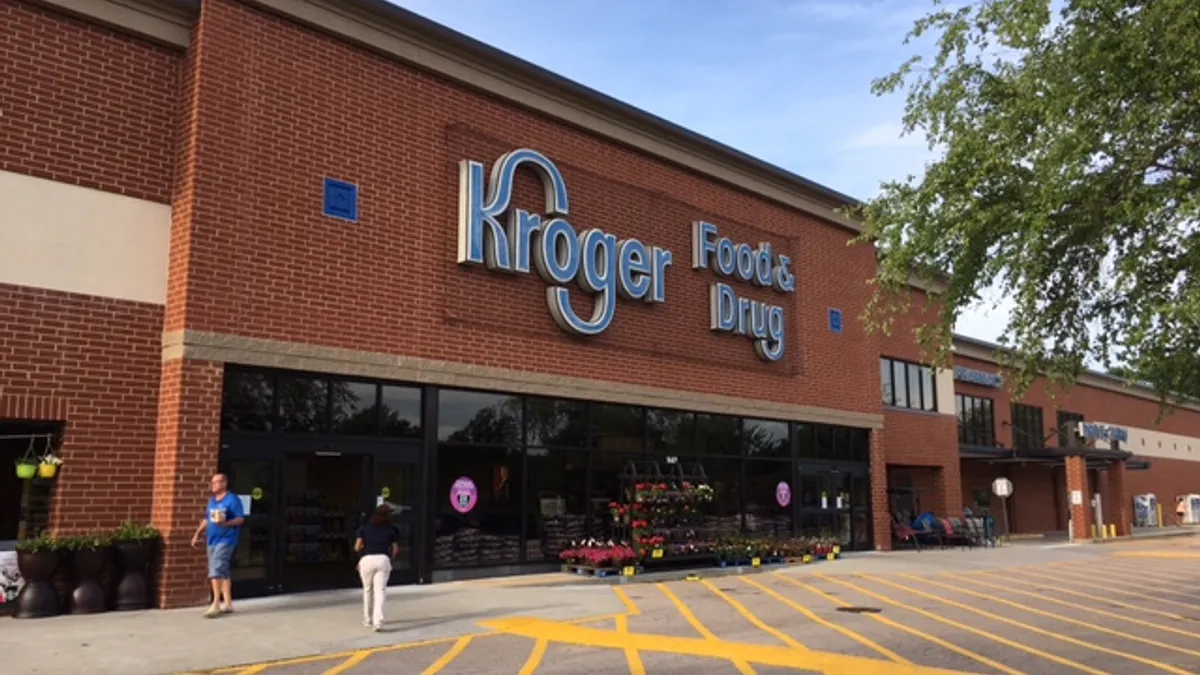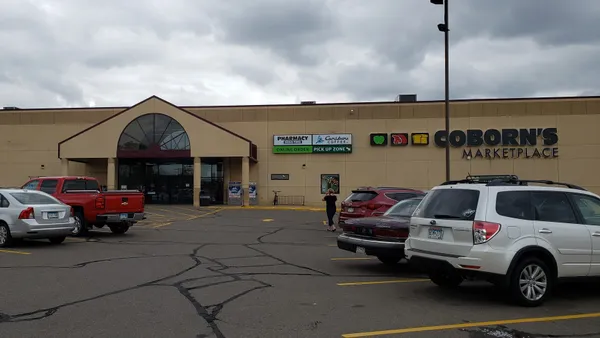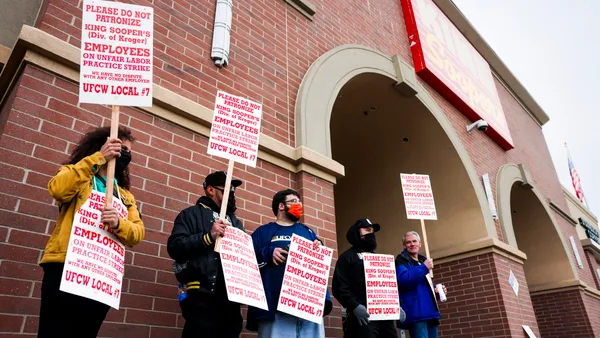Dive Brief:
- Kroger announced it has sold its Turkey Hill ice cream and beverage brand to Peak Rock Capital, a private equity firm based in Austin, Texas. Financial terms were not disclosed. Kroger expects the deal to close in the first quarter and says it will use the proceeds to pay down debt.
- Under the deal, Peak Rock will continue to operate Turkey Hill’s manufacturing business out of its Conestoga, Pennsylvania facility and retain all 800 full-time, part-time and seasonal workers. This marks the eighth food and beverage acquisition for the firm, which owns brands including Diamond Crystal Brands and Gold Coast Bakeries.
- Turkey Hill produces a full line of nationally distributed iced teas, fruit drinks, milk, frozen dairy treats and ice cream products. Sale of the brand was first announced last August.
Dive Insight:
As part of its sprawling Restock plan, Kroger is selling off parts of its business deemed inessential. This includes its convenience store arm, which it sold last year to the U.K.’s EG Group for $2.2 billion. It also includes Kroger’s You Technology digital coupon business, which it recently sold to Inmar for $565 million. Under that deal, Inmar will continue to offer those digital coupon services to Kroger as a contractor.
Turkey Hill is a well-known, nationally distributed food and beverage brand that’s been in operation for more than 80 years. But running a packaged goods business is no picnic these days, as evidenced by the struggles of top firms like Kraft Heinz and Campbell Soup. Keeping up with competitors and with shifting consumer tastes requires significant investment.
Kroger would rather focus on its private label business, which covers a growing array of product categories under several brands, including Private Selection and Simple Truth. Last year, Kroger introduced more than 1,000 new store brand products, growing share of that business to more than 30% of its overall sales. Simple Truth, the grocer’s leading natural and organic brand, grew sales 15.3% in 2018 and now brings in more than $2.3 billion annually.
During the company’s most recent financial earnings call, Kroger Personal Finance CEO (and soon-to-be Kroger chief financial officer) Gary Millerchip said inflation-based cost increases from brand manufacturers have boosted Kroger’s store brands.
"When somebody does that they end up giving up market share. And they give up market share to our own brands and over time we make more profit on Our Brands than we do selling the national brand," he said.
Kroger executives say they want to lower the company’s debt-to-EBITDA ratio from 2.83 last year to a range of 2.3 to 2.5 using free cash flow from the sale of assets and other revenue opportunities. The company is focused on optimizing its stores and investing in alternative profit streams, including Kroger Personal Finance and its digital ad business. But the company’s core grocery business remains under pressure, with gross margins dipping 93 basis points during the most recent financial quarter.













